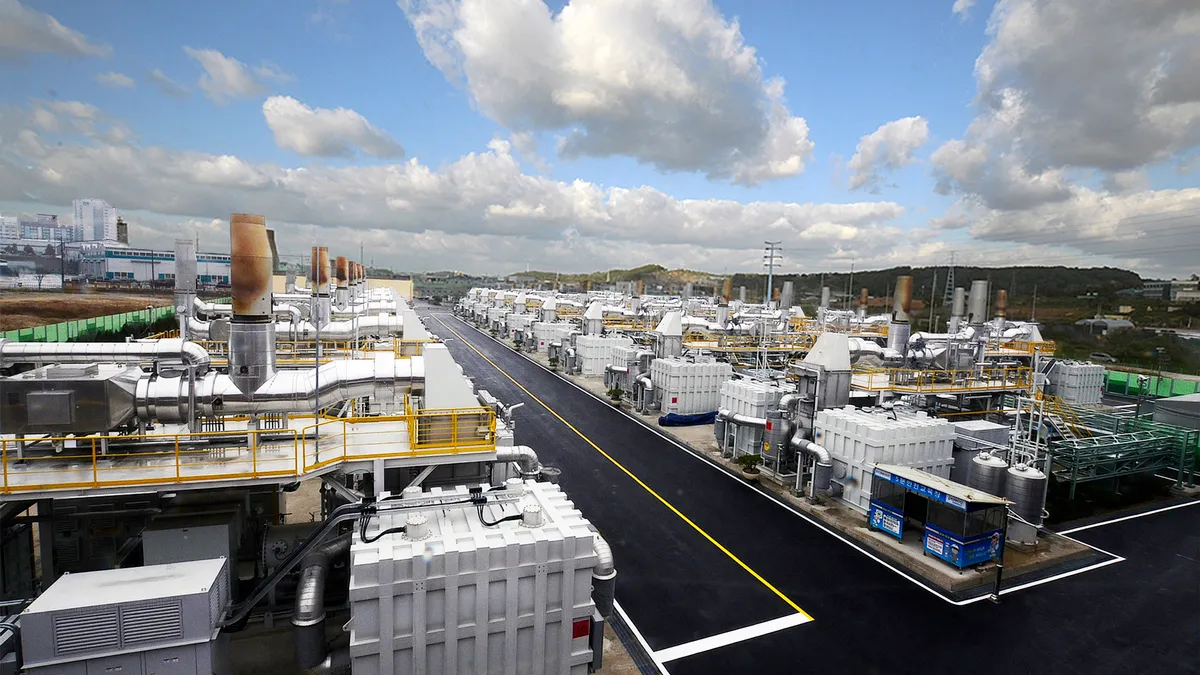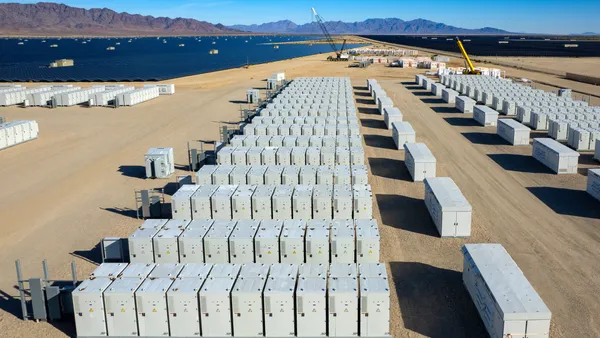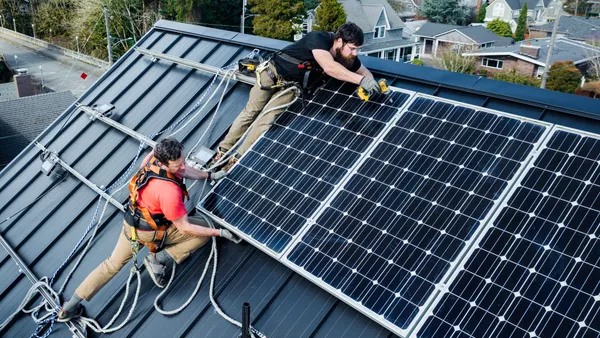Dive Brief:
- The U.S. Department of Energy has awarded a $3 million contract to Danbury, Conn.-based FuelCell Energy Inc., to advance commercialization of its innovative solid oxide energy storage technology, the company said in a press release yesterday.
- FuelCell's solid oxide cell technology can alternate between electrolysis and fuel cell power generation mode in an energy storage application, and could advance development of more efficient and longer-duration storage.
- The financial award announcement follows news the Department of Energy has significantly slowed funding opportunities since President Trump came into office, and the Advanced Research Projects Agency-Energy (ARPA-E), which is funding the fuel cell project, took a 93% cut to its budget.
Dive Insight:
Reversible fuel cells could offer significant advances in terms of long-duration batteries: just the sort of technology needed to help integrate large amounts of renewable energy onto the grid. So while FuelCell's work is newsworthy alone, that funding came from the federal government is (at least of late) a bit of an anomaly.
Since President Donald Trump took office in January, E&E News reported last month that DOE funding opportunities had slowed significantly compared to the previous administration, with some offices issuing no new funding opportunity announcements at all.
Trump campaigned vigorously on promises to roll back regulations and restrictions on energy production, but since taking office he has also been putting the brakes on energy research. His proposed budget would cut DOE funding by about 6%, and would all but eliminate ARPA-E, cutting its budget more than 90%.
Federal funding opportunities are a major part of finance for some research institutions, and are a strong link between the government and private sector research. ARPA-E's project investments attracted more than $1.8 billion in private sector funding since 2009.
FuelCell Energy indicated it will use the $3 million award to continue working on its solid oxide cell technology, capable of alternating between electrolysis and fuel cell power generation mode. The systems can produce hydrogen or other carbon-neutral fuels in electrolysis mode, the company explained in a statement, and later convert the stored fuel to power in power generation mode.
DOE awarded the grant under ARPA-E’s Renewable Energy to Fuels through Utilization of Energy-Dense Liquids (REFUEL) program.
FuelCell Vice President of Advanced Applications and Technology Development Tony Leo said in a statement that the fuel cell's configuration means it is capable of producing and consuming hydrogen or other carbon-neutral fuels for energy storage, "and to cleanly and efficiently generate electricity when needed by the electric grid offers exciting possibilities for integration of intermittent renewable power."
Trump's budget proposal, in cutting ARPA-E, explains that the "private sector is better positioned to finance disruptive energy research and development and to commercialize innovative technologies." However, the private sector is often reluctant to finance early-stage energy projects until they are commercially viable because of the long timeline before investors see a return.















